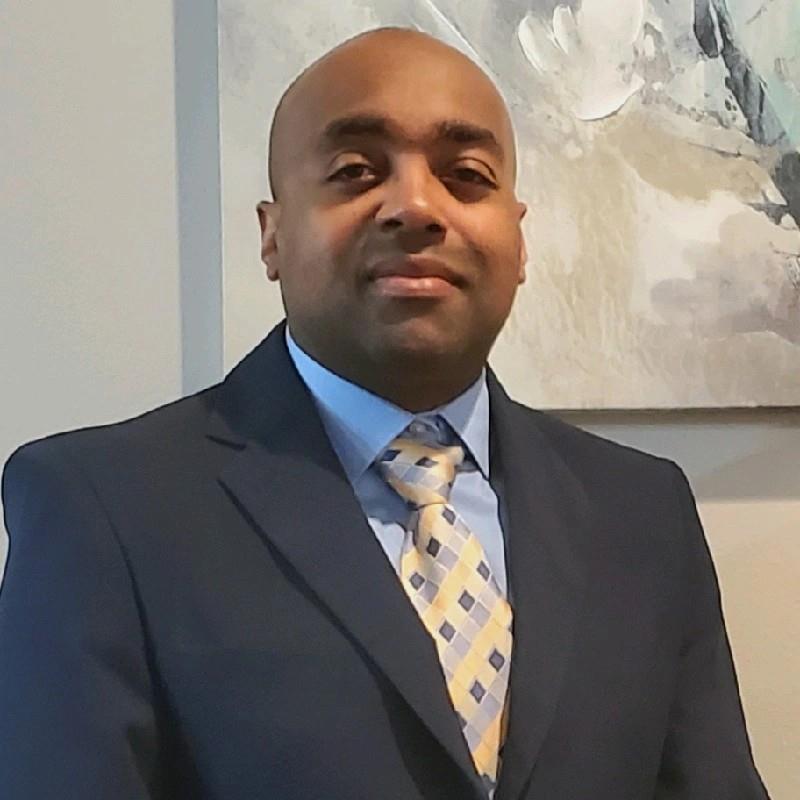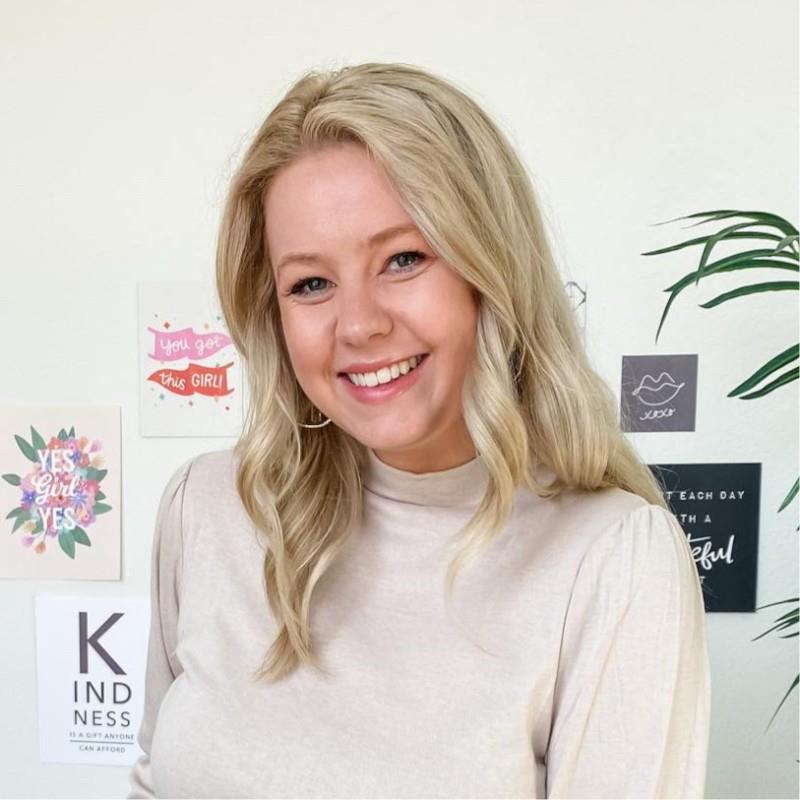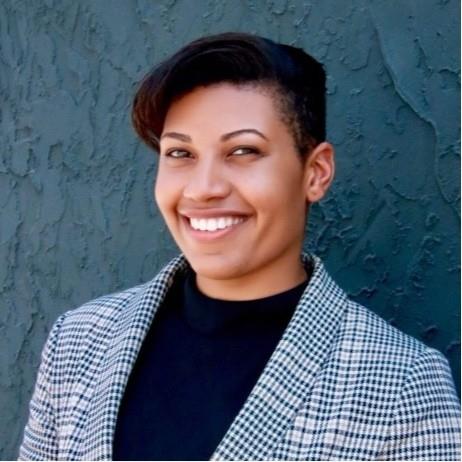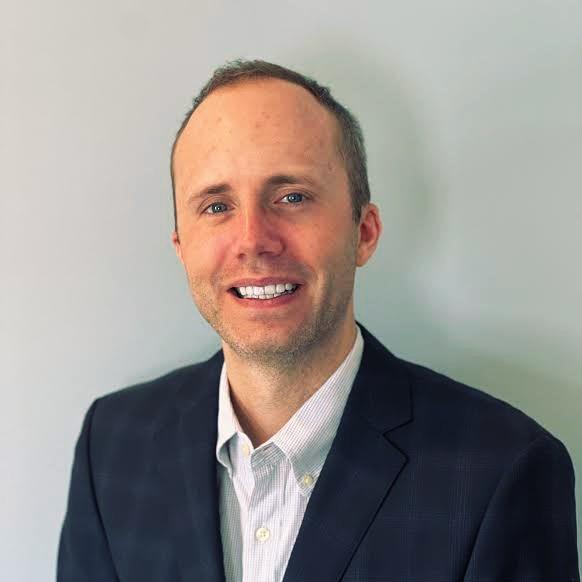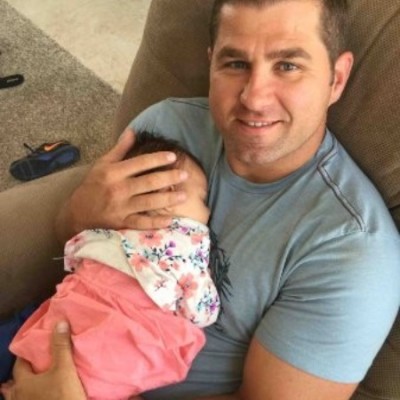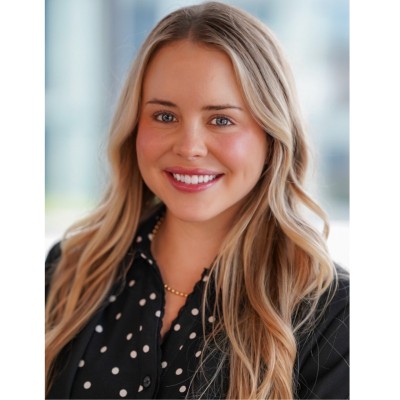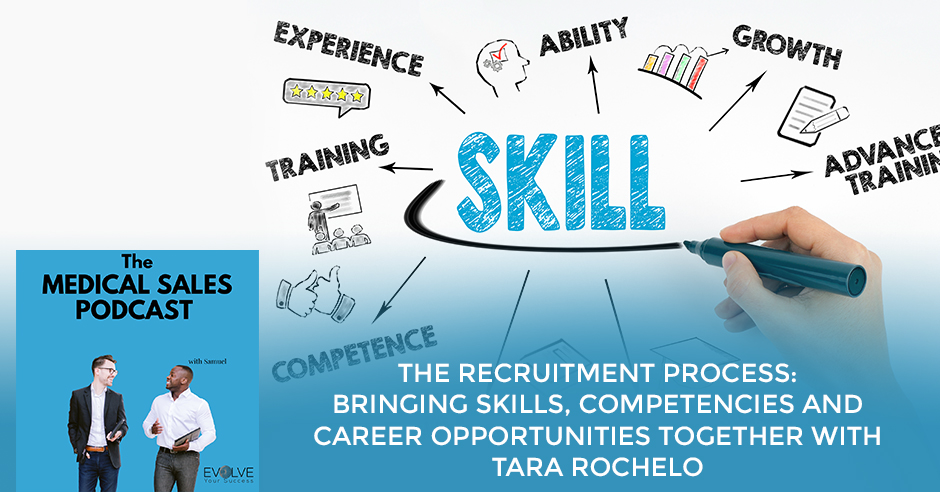
Starting as a sales rep for a pharma company, Tara Rochelo switched to being a recruiter when an opportunity came up. After a year and a half, she decided to start her own recruiting agency in the middle of the pandemic, fulfilling her childhood dream of becoming the person in the company who calls the shots. On today’s podcast, Tara takes the time to chat with Samuel Gbadebo about her career journey and gives us a peek into her 9-to-5. She also takes us through the recruitment process and highlights the importance of preparation before interviewing.
—
Watch the episode here:
Listen to the podcast here
The Recruitment Process: Bringing Skills, Competencies And Career Opportunities Together With Tara Rochelo
In this show, I interview top medical sales reps and leading medical sales executives across the entire country. It doesn’t matter what medical sales industry. From medical device to pharmaceutical, to genetic testing, to diagnostic lab, you name it. You will learn how to either break into the industry, be a top 5% performer within your role in sales or climb the corporate ladder.
—
We have Tara Rochelo. She is a committed and excellent recruiter, who is dedicated to helping people find the visions they want and helping companies find people they want. For anyone who wants to get a position and for any company decision-makers that are looking for the right people, this interview is important because we get an insight into how recruiters in the medical sales space see things. When I say medical sales space, I’m talking about life science in general, whether it’s something related to pharma or something related to medical device, or something in between. It’s important to see how recruiters perceive candidates that are looking into positions, and how they perceive the clients that are the companies that are trying to find the right people. We get into the detail on what’s expected of both sides, and what both sides need to be open to when it comes to meeting their own goals. Thank you for reading this episode. I hope you enjoy this episode.
—
Tara, how are you?
How are you?
I’m fantastic. We have a wonderful guest with us. This is Tara Rochelo. She’s a Recruiter from the Four Corners Executive Search. Tara, why don’t you tell us a little bit about who you are and what you do?
I am a medical device pharma tech recruiter. I’ve been in the industry since I graduated from college, but as a recruiter, since 2015. I work with mostly sales and marketing candidates. I’ve placed candidates from field sales all the way up through the VP level and director level. That’s a little bit of background.
Talk to us. Why did you get into recruiting? Where did you start? From what I remember, you were in the industry.
I was. I started out as a pharma rep. I joined Alcon back in the day as a Quintiles rep. As somebody with minimal sales experience, they gave me a shot. I was probably a risk hire for my manager, but I did pretty well. I won some performance awards and a couple of leadership awards. I transitioned out of that role after I had my older kids. I went to a smaller territory and started working for a smaller vascular company. From there, because my husband is in the military, we started moving quite a bit and trying to navigate that while being a mother and a professional was challenging. I was approached with the opportunity to recruit for the company that I was leaving at the time and I fell into it. It was a natural fit and I’ve excelled at it. It’s something that I loved doing. It’s something that I didn’t even realize I loved doing and it’s worked out well.
I want to understand more about how you fell into that, how you were noticed to be a recruiter when you were a rep. Before you even answer that, why did you want to even become a rep?
I remember the very first time I saw a pharmaceutical rep at one of my doctor’s offices when I was probably in high school. I remember seeing what my opinion of a professional woman was, confident and walked into the office. She knew everybody there. They welcomed her into the back. It was very clear that she had strong relationships and was somebody that they respected and welcomed into their office. I was like, “I can do that. That’s what I want to do.” In one of our military relocations, I ended up connecting with somebody who I knew through friends that mentioned to me like, “My company is going through an expansion and why don’t you reach out to Quintiles? I can connect you. I can get you the interview. You’re going to have to get the job.” I guess I did well enough that they gave me a shot. It was something that I had always had in my mind. I had no clue what a pharmaceutical rep did, but I always wanted to be a professional businesswoman. To me, in my world, that was something that I admired and wanted to be.
You did the pharmaceutical sales. How many years were you a pharmaceutical sales rep before this opportunity came up?
I was a rep for 7 or 8 years or somewhere along those lines.

Were you tapped on the shoulder by your company and say, “I know you’re a rep, but we needed a recruiter?” What happened?
I had given my company notice that I was going to be moving. I was giving them three months’ notice or something because we had found out that we were going to be relocating from Washington DC to Las Vegas. I loved the company I was working with and I talked to the VP of sales and I said, “I know that you guys are going through a lot of expansion. Do you have any desire to open any practices out on the West Coast?” At the time they didn’t have the infrastructure to manage that. They didn’t have the expanded call center hours to handle the Pacific hours. They said, “We do need somebody more dedicated to recruiting. Why don’t we talk about that?”
I ended up going to work independently for the recruiting agency that they were using, which was an amazing experience. This is an agency that recruits in rare diseases and these complicated complex sales cycles and interesting stuff. I was blown away by some of the people that I was talking to on the phone and I cut my teeth in recruiting in that because I had no idea what it was like. I was talking to people that are doing marketing and clinical studies for these ultra-rare diseases and I was a sponge. I was learning everything. I was getting up at 5:00 in the morning to talk to these people on the East Coast before they were getting into work for the day.
How long were you in that position?
I was in that role for about a year and a half, and then I got antsy. That was an amazing opportunity, but they were working on very high-level stuff. The pace was a little bit different than a typical medical device or field sales recruiting role where there’s a lot more volume. I didn’t have any experience recruiting in a medical device. I approached a few companies and said, “I may be interested. I want to see what device recruiting is like.” I heard back from a few. I talked to a few and ultimately ended up going with the company I was with prior. It was an amazing experience. We were working with Fortune 500 clients and venture capital-backed startups. It’s interesting stuff. I cut my teeth in med device and recruiting there. I learned as much as I absolutely could and I talk to anybody that I could to learn about their backgrounds, what was going on and what’s happening in the industry. I’ve been doing this for years now and I still have so much to learn. The industry is constantly changing, which is what I love about it.
You were doing that role for how long?
I was there for about four years.
What was the next step?
From there, I decided to go off on my own. In the middle of a pandemic and the hiring is at an all-time low, I was like, “Why not go out and start your own recruiting agency?” It goes back to a couple of things. At five years old, if you had asked me what do you want to be when you grow up? At the time in the late ‘80s, early ‘90s, Starbucks was the big thing and I wanted to be the CEO of it. That was my plan. Fast forward to now, I’m in a position where I feel that I like the control of managing the entire process from start to finish. I am a control freak. I do enjoy high levels of communication. A lot of being part of a larger company is getting a candidate and then punting them to somebody else and saying, “Here you go.” You lose that. For me, the next step is to go off on my own to where I can manage the entire process from start to finish.
Is this a natural progression?
[bctt tweet=”If you don’t fight for your products to be in the physician’s office, there are ten reps behind you who will.” via=”no”]
Absolutely.
Tara, there’s a phenomenon that happens that I know you’re very familiar with it. I want to shed some light on it right here right now. I talk to a lot of people from hiring managers to people that want to give positions to other recruiters. When it comes to candidates that want to get positions, a lot of them tell me about how they meet a recruiter, they give them their information and they never ever hear from them again. They’ll be contacted by the recruiter for an opportunity, give them information, hope for the best and completely ghosted. Immediately people want to say, “Those terrible recruiters,” but I know there’s so much more to it. Shed some light on what’s going on there and what it looks like in the day of the life of a recruiter.
I answer this question pretty frequently. As a recruiter, I work a lot on the candidate side. I’ll explain that a little bit more. I value my relationships with candidates. Have I ghosted people before? Probably. We’re human. We often have many plates spinning at one time. This is how we make a living. Unfortunately, the clients drive our activity. This is how we make a living. We need to cater to what the clients are looking for. What I will say is that most recruiters do not intentionally ghost people. They are getting hundreds of resumes a day, especially now. This time is the most difficult for recruiters. They’re getting hundreds of resumes. They don’t necessarily have jobs for a lot of these people who are getting referred to them or who are reaching out to them proactively. A lot of times, and I hate to say falling back on the candidate, but I have tested candidates. When I know a hiring manager is going to be particularly difficult and expect a lot of engagement from the candidate, I will go dark to see if the candidate is going to chase me a little bit.
You play hard to get.
It’s indicative of how they’re going to go after the job. There are some jobs out there that you may be their top candidate. They’re not going to tell you. They are going to want to see how hard you’re going to fight for this job because when you go out in the field selling their devices, if you don’t fight for your products to be in the physician’s office, there are ten reps behind you who are going to. They want to see how you’re going to fight for it. As far as candidates getting ghosted, I’ll go back to something that I mentioned. A lot of recruiters who work almost exclusively with clients, what they do is they receive a job order from their client who in this case is the medical device company.
They are tasked with finding candidates for that specific job that fit that specific profile. That’s essentially what they do all day. There are a lot of recruiters who work mostly on the candidate side. I know of several who only work on the candidate side and they essentially collect resumes all day and work with candidates all day, but they don’t necessarily have a job for that specific candidate. They’re collecting resumes and building their database in the hopes that at some point I’m going to have a good job for this candidate. The other piece that I would say most recruiters fall into is that they work on both sides. In order to earn a living and to be able to maintain relationships with candidates and with clients, you have to have a certain level of activity, and it’s human nature.
I hate that it sounds like a cop-out, but it’s human nature that sometimes people fall through the cracks. As a recruiter, we have to be better 100%. I try every day to be better. I know right now a lot of people are applying for jobs and they’re not hearing back and it’s very discouraging. Stay on top of it because I promise you, if somebody’s emailing me every other day and I’m not getting back to them, which I’d be embarrassed if that were the case because I do pride myself in having good relationships with candidates. If somebody is emailing me constantly and staying top of mind, I’m going to get back to them.
I still think people can’t appreciate exactly what you go through on a daily basis. I want the audience here for those that are looking for positions to appreciate what it is increased growth. Can you kindly walk us through your 8:00 to 5:00? What does it look like?
I use a wonderful program called Calendly to schedule calls with candidates. First thing in the morning, I drop my kids off at school at 8:00. I have my first call available at 8:30 when I’m in the office and I’ve got everything set up and ready to go. Some days, I’m booked back to back. I never stop for lunch. I never stop for anything. I’m on calls all day. When I’m on calls and getting texts from candidates, other recruiters or hiring managers. We’re juggling a lot of things at once. On a super busy day, I’m on calls back to back all day. On Fridays, I do try to reserve time for talking with candidates who may need some coaching who are looking for advice to getting into the industry, things that I would put on the back burner on a normal day.
I do try to reserve time for that. We are screening hundreds of resumes. I’m usually doing that at night. I’m going through LinkedIn. I’m contacting hundreds of people on LinkedIn with whatever job orders we have. Most of that I’m doing at night. It’s funny because I’ll get responses back from candidates. They’re like, “I always have time to talk to somebody who’s emailing me at 10:00 at night.” There’s always a catch. There’s always a double-edged sword. Some people may be offended by it. Some people may see it as a good thing. The thing about recruiting is it’s a 24/7 job. If you are somebody who’s successful at it and it’s a lifestyle.

With that being said, what’s the most gratifying moment?
There are many and that’s what I love about it. The most gratifying moment is when I get a LinkedIn message or a phone call from a candidate that I placed at a company a year prior and they’re saying they’re the Rep of the Year or, “I got Rookie of the Year. I can’t thank you enough for pointing me in the right direction.” It’s also equally gratifying to have a candidate who wasn’t necessarily interested in the job that I had presented them at first. I’m the oldest of four children. I’m a bossy person. If I think that you should consider something, I’m going to tell you. It’s equally gratifying for somebody to tell me, “That’s not what I’m interested in.” For me to have had some input there in a career decision that they made and that they’ll come back to me when I check in with them. I usually check in with people about 3 to 5 months after they’ve started and gone through the training and check-in and see how everything’s going. They’re like, “I’m drinking through a fire hose, but this is the best decision I ever made in my life. I appreciate you pushing me this way.”
—
Let’s talk a little bit about your specific clientele. Medical device sales, we know that and a lot of life sciences sales, but let’s be a little bit more specific. What is your most common candidate? If it’s medical devices, what fields specifically? How many years of experience? Go ahead and describe that for us.
Some recruiters do have an area where they focus. They focus on spine, aesthetics or robotics. I can definitely say I don’t have an area of focus. I would say most of my placements have been surgical in some form. I’ve also done a lot of aesthetic sales positions. I wish I had a short answer for you, but I don’t have a specific area that I’ve recruited in.
How many years of experience? Would you work with a lot of people that are brand new to the industry, 2 to 3 years in, 10 to 15 years in, evenly spread across the board?
I would say evenly spread across the board. On my plate now are a lot of companies that are looking for experienced reps who have a certain amount of experience selling a certain type of equipment or a couple of years selling into the operating room and know the hospital vertical. Pre-COVID, it was probably doing more of the entry-level B2B sales reps or medical reps that maybe only have 1 or 2 years of medical or pharma.
With that being said, with the environment that we’re in now, I’m lucky enough to work with individuals that they’re getting positions and they’re brand new. In a general sense, what separates the entry-level candidate that gets positions in this environment from the entry-level candidate that can’t?
I would say first and foremost is the intention and the preparation. I was one of them. I stumbled into a pharmaceutical sales opportunity. I interviewed well enough that they gave me a shot. Does that happen? Not often. I would say 99% of the time, I can tell you a candidate who comes to me who has networked, who has done interview preparation, who has done some personal branding, who maybe has gotten some outside coaching. Somebody who has done their homework on the industry, somebody who spent time meeting other medical device reps that they can use as mentors or they consider mentors for coffee.
Doing their homework and understanding what a medical device rep does and what they need to do to make themselves stand out and show that they have the intention and that they are prepared, and that this is their plan and this is what they want to do versus somebody who is like, “The recruiter presented me with this opportunity and the money sounds good. It sounds cool to go work in the operating room and sell hernia mesh.” It sounds like a good opportunity. Candidate number one who has done the preparation is always going to stand out.
That’s why we’re here, to do your recruiting. That’s why I do what I do and helping people. I want you to talk a little bit more about the importance of how in-depth that preparation needs to be. I’ve talked to people that they’ll call someone the night before their interview and that’s pretty much all the prep they’ve ever done.
[bctt tweet=”The candidate who has done the preparation is always going to stand out. ” via=”no”]
The thing is you don’t know what you don’t know. I probably say that 40 times a day. I suggest to candidates when they are interviewing, no matter what phase of their career they’re in, to go on LinkedIn and reach out to three people that do the same job. Sometimes hiring managers will provide names of people they want, reps or candidates to reach out to. I always encourage people to do it on their own because you’re going to get a much clearer picture of what the job is. You’re going to get a clear picture of the people that work for that company, whether or not these are your people. Do you feel like you belong there? That’s important. This is a decision you’re making in your career. Can people change jobs in 2, 3 years? I believe every stop is a stepping stone and every stop is an opportunity to learn. However, when you’re intentional with what you’re doing, it sets up your career path for a fantastic trajectory.
That’s great on the candidate forms. As far as recruiters go, what have you seen that helps recruiters be more successful? What types of things can they do that you definitely say what, “If a recruiter does these top three things, they’re going to be successful out there?”
In terms of working with clients or working with candidates?
I was going to say work with candidates, but give us both, with clients and candidates.
The biggest thing in terms of working with candidates, I would say honesty and candor are tremendously important. Sometimes a candidate does not know that they are saying something in the interview process that can come off as offensive or that comes off as maybe immature. Sometimes they don’t know. Being able to present somebody with that feedback, that’s our job as a recruiter. We are there to help them and not just present them with jobs, but we’re there to help them through the process. I would say communication is huge. Being available and being approachable for candidates are the biggest things because I’ve worked with a lot of candidates who have said to me, “I’ve talked to ten recruiters this week and it is a breath of fresh air talking to somebody who it feels like you’re invested in me. I feel like I’m not a number or a resume on their desk.” That’s important.
The same three things are important working with clients because sometimes as recruiters, we have to have tough conversations with our clients. Sometimes their expectations and the candidate pool don’t quite match. I don’t think clients should ever set their bar lower. I don’t ever want to suggest anybody do that, but sometimes they need to understand what the actual market looks like. That’s one of the benefits of working with a recruiter. You have somebody who’s working sometimes with competitors. Somebody who has their hands in the industry every single day and is talking to people in the industry every single day that can give you that intel and be like, “I know you want somebody who’s got five years of experience. They have the book of business with these hospitals and is making a good amount of money and that this would be a great next step for them,” and that doesn’t exist sometimes. I think that’s important and being able to have those conversations, being open and honest and highly communicative. I can’t work with clients that don’t communicate at the same level because I get incredibly frustrated. Highly communicative and available.
Tara, help me understand. Elaborate a little bit more on what do they need, especially in this environment to move forward with? What’s important right now?
What’s important right now is the preparation that goes into the interview process. I would say what you’re doing is incredibly valuable because I do find that, especially with candidates who are looking at getting into medical device. What you do in teaching them how to brand, network and be able to articulate their story, which every hiring manager wants to hear somebody’s story. Candidates could think they don’t have a story per se, but everybody does. You need to be able to articulate that. A lot of people don’t necessarily know those steps, the preparation, the networking and understanding that. Your resume should match your LinkedIn and the person that shows up for the interview. It should all be seamless.
When a candidate comes to me and they have all of those pieces, I get so excited because I’m like, “This candidate is ready to go. They are ready to interview. I’m going to find them a job.” When somebody comes to me and they’ve not done any of that or they don’t understand all of the preparation that goes into it, it’s not to say that they’d get any less support or any less attention. Let’s say they were competing against somebody who has maybe gone through your program, understands the branding, the networking and all of those pieces versus somebody who hasn’t done that. The chances of the two of them competing and the candidate who hasn’t done the preparation getting the job I would say is low.
That’s part of why I do it. That’s good. I’m glad that you’ve identified that. We’re dealing with COVID. Would you say that COVID has changed the playing field and what it looks like to get into medical sales? There might have been permanent changes or do you think that as soon as we’ve got our heads around this period, things are going to go right back to where they were?

There are permanent changes. I will start with that. The amazing thing about medical device is that it’s incredibly innovative. This is a huge challenge, but companies are seeing this as an opportunity. They’re launching virtual reality programs to be able to essentially have the rep in the operating room with you when they’re not there. They’re implementing video training for physicians and for surgeons. There are so many things going on because I don’t anticipate that things will ever return to exactly what they were. There have been many things that we’ve seen that are so much more efficient with being able to do many things virtually. It’s changed the interview process drastically.
As far as the playing field for people who are trying to get into device, I would say it’s much more competitive because there are a lot more people looking for work. That’s the nature of having a high rate of unemployment that people without medical device experience are going to be competing against people with medical device experience. There’s always that component. However, there are a lot of companies out there who are willing to take a chance on somebody because they show that they’re hungry. They show that this is their intention and this is what they want to do versus somebody who has a couple of years of experience and doesn’t have that fire in the belly. There are definitely clients who will value that over experience.
It’s almost like having that clarity of your why. Why do you want to be here? Just because being in here for a little while doesn’t mean that you’re automatically guaranteed. For medical sales in general, would you say that the demand has increased in the past five years?
Yes, I would. I don’t know what the actual statistics are, but I would say that the demand has increased because the number of players in the market has increased. The number of medical devices, the software, the artificial intelligence and digital surgeries. There are many new players and many exciting things.
I remember many years ago, there used to be this idea that the medical sales rep is going to fizzle out and they’re going to be less and less. As technology improves, as corporations join together and become bigger corporations, there’s going to be a need that it’s not going to be there anymore. Would you go as far as to say the opposite has happened?
Maybe I’m being a little too optimistic, but I would, particularly when you look at some of these companies that provide respiratory equipment right now. I was talking with reps back in March, April with Karl Storzome of these companies that have this respiratory equipment and these devices that were so needed. They were running ragged. When hospitals could not get the equipment they needed, these reps were providing stock from their storage facilities. Besides the physicians, nurses and the people who are treating the patients, I had never seen a more valuable medical sales rep until then. It was amazing what they did.
Tara, is there anything else you’d like to share with us about what you do and maybe some information that you’d like to leave with our audience?
First of all, I appreciate you having me on here. It’s been a pleasure chatting with you. Please check out my company. You can check out our website, it’s at FourCornersSearch.com. I would be more than happy to chat if anybody is looking for some insight on the industry, please reach out. You can connect with me on LinkedIn. I always provide some insight. As far as what I do, I work on the client and candidate side. I do valuable sides. It’s what I love about the job. I love it when I’m talking to a hiring manager and I can hear the excitement in their voice about a candidate. I love it when I’m talking to a candidate and I hear the excitement in their voice about a job. I enjoy what I do. There’s no better time. If you’re looking at getting into medical device, this is absolutely the time to look at it. There’s so much on the horizon in this industry. There are lots of stuff going on.
Thank you for spending time with us. We will check in on you sooner than later.
Thank you.
—
That was Tara Rochelo. I think that was very important to know all about that. She goes into details with the mentality a candidate needs to have. What she describes is a hunter’s mentality. When you can demonstrate a hunter’s mentality with a recruiter who, for whatever reason, is potentially connecting you to an opportunity, then they have the confidence you’re going to be able to demonstrate that same hunter mentality to the hiring manager. If you can demonstrate the hunter’s mentality to any decision-maker or anyone that’s part of the decision-making process, immediately you’re going to give yourself an advantage because you’re going to be taken as someone that wants to do what it takes to get this position.
This was such an important episode, many things were highlighted. Even with the client’s side of things, as far as the company is concerned, of course any company wants a very specific person that’s going to meet the need for their team. With that being said, they also need to be flexible because there are many amazing candidates out there that will really perform if given the opportunity. They might not have that experience, they might not have the exact skills you’re looking for that would make the perfect candidate for your team, but they have some transformative skills that if given the opportunity, can make some serious waves and can be an asset to the team they joined.
Thank you for reading. If you’re someone out there who’s looking to get a position, then you need to make sure you visit EvolveYourSuccess.com and follow the prompts to Attain a Medical Sales Role. Let us help you make that happen. If you are someone who already have a medical sales role, and now you want to take your career to a different space, you want to get a promotion into a different part of the company, you want to start working on what you want your career to look like in the next 2 or 3 years, you want to develop your sales skills to be a performer now, then visit EvolveYourSuccess.com, and select Improve Self Performance, and let us help you make that happen.
I would do everything I can to bring you guests that are going to give you some insight, whether you are a person trying to get into the industry or you are someone trying to flourish within the industry, or you are a decision-maker who’s trying to better understand the people that want to be on the teams that you make decisions for, this is the place that I want you to come. If you have anything you’re itching to understand better, something you want to know, go to EvolveYourSuccess.com and right there to the bottom right, you’re going to see something that allows you to send a message. Go ahead and ask anything you want to see in the future episodes, so that I can continue to bring amazing guests that are getting you some great insights. You can find me on LinkedIn, look up Samuel Gbadebo. Go ahead and send a message. I can meet you there. I’m also on Instagram and Twitter. Thank you for reading. Make sure you tune in next time for some more amazing episodes.
—
I hope you enjoy this episode. I have a couple of programs to show you exactly how to break into the medical sales industry, become a top-performing medical sales professional and also how to masterfully navigate your career to executive-level leadership. Check out these programs and learn more at EvolveYourSuccess.com. Stay tuned for more awesome content with amazing interviews.
Important Links:
- Tara Rochelo
- Calendly
- LinkedIn – Tara Rochelo
About Tara Rochelo
 After working together with Tara several years ago we reconnected as she is now in her recruiting position via LinkedIn. Tara went out of her way to present me with an exceptional career opportunity that another recruiter in her firm was working to fill. Tara was extremely responsive and helpful early on sending me the background information on the position and then forwarding my resume on to her counterpart. Tara continued to keep in touch throughout my interview process and was extremely encouraging. I highly recommend working with Tara when you are looking for your next career move! Thank you again Tara for thinking of me and seeking me out on such a fantastic opportunity!!
After working together with Tara several years ago we reconnected as she is now in her recruiting position via LinkedIn. Tara went out of her way to present me with an exceptional career opportunity that another recruiter in her firm was working to fill. Tara was extremely responsive and helpful early on sending me the background information on the position and then forwarding my resume on to her counterpart. Tara continued to keep in touch throughout my interview process and was extremely encouraging. I highly recommend working with Tara when you are looking for your next career move! Thank you again Tara for thinking of me and seeking me out on such a fantastic opportunity!!
Love the show? Subscribe, rate, review, and share!
Join the Medical Sales Podcast Community today:
